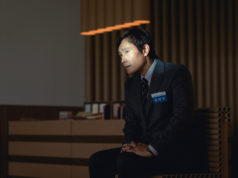“I love murder,” the French film director reputedly once said. Indeed, many characters in his movies meet swift, brutal, meaningless deaths, so it seems incongruous that Claude Chabrol passed away Sunday at the age of 80, after a long and (by all accounts) serene and productive life.
Chabrol was one of the pioneers of the French New Wave, and was recognized as such during the Modern’s retrospective last year. While Eric Rohmer made comic morality plays, Godard subverted cinematic conventions, and Truffaut tried to give the world a hug, Chabrol carved out a niche all his own. His films are cold to the touch, composed, and only funny in their relentless dissection of French middle-class families and the hypocrisies that they often harbor.
He made a ton of stuff in more than 50 years as a movie director, and he was working right up until the end. A Girl Cut in Two was his last film released here, but his last completed work, Bellamy, has yet to be released in America. (Neat pun in the title: Bellamy is the main character’s name, but it’s also a play on the French phrase bel ami, which means “good friend.”) I wish I had a list of five or ten obscure films of his that I could recommend, but the best I can do is steer you toward his 1995 film La Cérémonie, an adaptation of Ruth Rendell’s A Judgment in Stone, in which the match between Chabrol and Rendell’s world-views is chillingly perfect. You can check out that or his better-known titles like Les bonnes femmes, La femme infidèle, or Le boucher. Here’s a pretty good in-depth appreciation of his career.
One key to Chabrol’s legacy is to simply look around. French filmmakers are still making chilly suspense thrillers in his style, like Dominik Moll (Lemming) and Jacques Audiard (A Prophet). You can detect his influence in Arnaud Desplechin’s stuff like A Christmas Tale and Kings & Queen. The current film The American borrows from Chabrol’s playbook, but the closest recent English-language equivalent we have is Woody Allen’s Match Point. This is worth recalling as we ponder the enlightening precision pieces that Chabrol left us.











